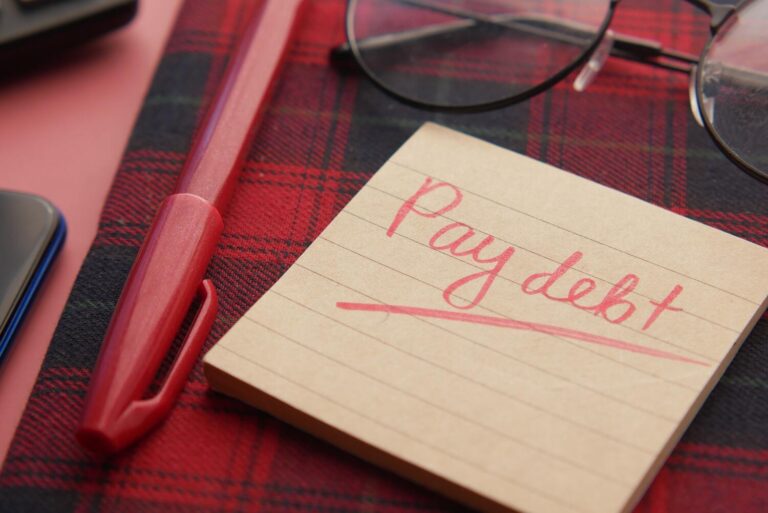10 Genius Strategies to Obliterate Your Car Loan Faster

Buying a vehicle is a big investment, so turning to a loan to pay for your car is pretty common. But while financing your car purchase with an auto loan does break up your total vehicle cost into manageable monthly payments, it also means that you end up paying more in interest and fees than you would if you’d just paid for it upfront.
Rising car prices are partially responsible for increases in the average car loan term, which is now 72 months, and the average individual auto loan debt, which is at $19,865.
Paying off a car loan early can sound tempting if you want to save money and free up cash for other financial goals. However, it’s important to consider your auto loan terms and personal financial situation before moving forward.
Read on to learn about the potential benefits and drawbacks of paying down your car loan early, plus 10 useful strategies for doing so.
Pros and Cons of Paying Off a Car Loan Early
Weighing the advantages and disadvantages can be a helpful exercise for any major financial decision.
| Pros | Cons |
|---|---|
| Improves debt-to-income ratio | Possible prepayment penalties |
| Avoids an upside down auto loan | Can result in a temporary drop in credit score |
| Saves money on interest | Could delay paying off other debt with higher interest |
Pros
There are a number of potential advantages to paying off your auto loan early.
- Paying less in interest over the life of the loan. For many, saving on interest payments is a major benefit of settling auto debt.
- Improving debt-to-income ratio. Getting out from under a car loan can lower your debt-to-income ratio—a metric lenders use to determine how much you can afford to borrow. That could be an asset if you’re looking to apply for a mortgage or other financing.
- Avoiding going upside down on your loan. If you have a high interest rate and lengthy repayment term, you could end up eventually owing more on the vehicle than it’s worth—a scenario known as an upside down auto loan. Paying your loan ahead of schedule could help you avoid this risk.
Cons
Depending on your situation and loan terms, there could be downsides to early repayment.
- Potential penalties. You could face a prepayment penalty for paying off your loan before its term. Be sure to check your loan contract or speak with the lender to see if you might be subject to such a fee. If so, you may want to compare the penalty fee with the overall savings of paying off the loan early so you can determine whether it’s worth it.
- May not be the best use of your funds. Prepaying may take up money that you could have used for paying off higher-interest debt first.
- Can impact your credit score. Paying off your loan could result in a temporary drop in your credit score since it reduces the diversity of your overall credit mix.
10 Tips to Pay Off a Car Loan Faster
Using these 10 tips may help you pay off your car loan debt more quickly.
1. Review Your Loan Terms
It may have been a while since you were shopping for car loans, so revisiting the terms and conditions is a useful first step as you’re assessing your options for fast repayment.
First, you’ll want to check if your auto lender prohibits early repayment entirely.
Next, keep an eye out for prepayment penalties, add-on expenses, and the car loan amortization schedule. The latter is key to determining how extra payments will be allocated between the loan’s principal, interest, and fees.
Since interest builds on the remaining principal, putting extra money specifically toward the principal balance can reduce how much interest accrues.
Finally, you’ll also want to know the interest rate and loan length to calculate how much you’ll save by paying off the loan in advance.
(If you want to brush up on financing lingo, check out our guide to key auto loan terms.)
2. Never Skip Payments
Missing an auto loan payment could lead to late fees and accrued interest on the principal, thus increasing the total cost in the long run.
To remedy the situation, some lenders may allow you to opt for a loan deferment. However, this extends your loan term, which slows down your efforts to pay off your car loan faster.
If you continue to skip payments, your credit score could take a hit and the lender may ultimately repossess the vehicle. Setting up automatic payments can help avoid these outcomes.
3. Round Up Your Car Loan Payment
Monthly car loan payments are often structured as flat-rate payments for the duration of the loan. Rather than simply paying this minimum monthly amount, rounding up could help you pay off the car loan faster. Depending on your budget, you could increase monthly payments to the next $50 or $100 mark.
For example, borrowing $20,000 at a 4% interest rate for 72 months would yield a monthly payment of $313 and $2,536 in interest over the life of the loan. Rounding up each monthly payment to $350 would pay the loan off 8 months earlier and save $304 in interest.
Escalating payments up to $400 would shorten the loan by 15 months and achieve $559 in savings.
4. Snowball Your Debt Payments
The debt snowball method is a useful way to tackle outstanding debt by focusing on the lowest hanging fruit.
Put simply, this strategy involves making minimum payments on all your debt while allocating any leftover funds to the smallest balance. Once that debt is repaid, you move on to the next lowest balance.
If you’re able to pay the minimum balance on your other outstanding debt and put any leftover funds toward paying extra on your auto loan, this may help you pay it off faster. But bear in mind that in your overall financial strategy, it can make sense to focus on paying down your highest-interest loans first.
5. Make Biweekly Loan Payments
If you get paid biweekly, aligning your car loan payments with your paycheck schedule can help you pay off your car loan faster.
With this approach, you make biweekly payments that should each equal half the amount due each month. This adds up to 26 payments over the course of the year, meaning you’ve actually made the equivalent of 13 monthly payments in the year rather than 12.
Biweekly payments could also reduce how much car loan interest accrues over the life of the loan.
6. Put Unexpected Income Toward a Partial Lump Sum Payment
It can be difficult to figure out how to pay off a car loan faster when your budget is tight.
One option is to plan in advance for how you’ll spend unexpected extra money, known as windfalls, that you receive in the future. For instance, you could allocate all or a portion of these funds to a lump sum payment on your auto loan.
Some possible examples of windfall payments are a bonus check, tax refund, or inheritance. The average tax refund in 2021 was $2,873, according to the IRS. For most auto loans, this sum could cover several monthly payments.
7. Cancel Unnecessary Auto Services and Warranties
When you purchase a vehicle, it’s not uncommon for your dealer to tack on service contracts and warranties.
Depending on the terms of these extras, it may be more cost-effective for you to pay for services, like oil changes or tire rotations, out of pocket.
If possible, canceling unnecessary service agreements and warranties could reduce how much you owe and help you pay off the loan sooner.
8. Reduce Extra Expenses
Consider examining your discretionary spending to find opportunities for additional savings that could be put towards a higher auto loan payment.
For instance, you could cancel underutilized subscriptions or share accounts with friends or family.
Preparing more meals at home is another strategy to rein in spending. This could amount to a considerable sum given that the average American spent more than $3,500 on dining out in 2019, according to the Bureau of Labor Statistics.
9. Earn Additional Income
Rather than dipping into savings or cutting expenses, you could try to make extra money with a side hustle. Some in-demand services include dog walking, pet sitting, and online tutoring.
If working extra hours isn’t feasible, you might sell excess belongings like clothes or furniture you don’t use. Instead of an old-fashioned yard sale, using apps like Poshmark, LetGo, or OfferUp can expand your pool of potential buyers.
10. Transfer the Loan to Someone Else
If you’re having trouble making even your basic car payments, the other options may not adequately address how to pay off a car loan quickly.
A possible solution to your car debt could be getting someone else to take over your auto loan.
Lenders willing to accommodate a transfer may adjust the contract terms for whomever you are transferring the loan to.
It’s worth noting that this process requires making a title change for the vehicle.
The Takeaway
Paying down your car loan faster takes work and discipline. Besides finding ways to chip away at your loan principal, you can also try refinancing your auto loan to secure a lower interest rate and shorter term. Refinancing may also let you set up smaller monthly payments over an extended term. And if you’re refinancing an auto loan with bad credit, you may still be able to get a new loan, though it can help to get a cosigner with better credit. Whatever makes the most sense for you, it’s essential to find a lender that will meet your needs.
Disclosures:
The tips provided on this website are of a general nature and do not take into account your specific objectives, financial situation, and needs. You should always consider their appropriateness given your own circumstances.SOLC0821137
This article is originally on Lantern Credit.






